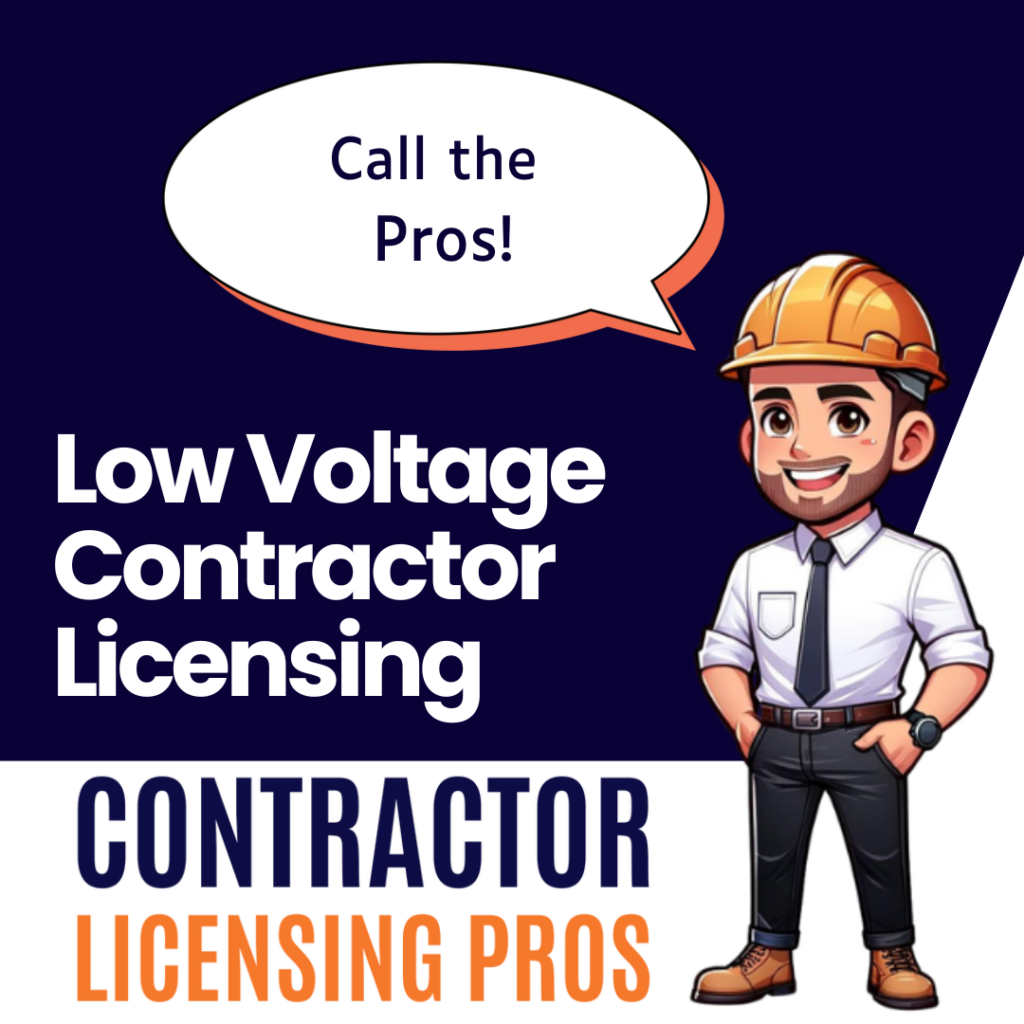Low Voltage Contractor Licensing
low voltage licensing in all fifty states

At Contractor Licensing Pros, we specialize in navigating the complex landscape of low voltage licensing across various states. Whether you’re looking to enhance your qualifications in Florida or understand the requirements in Tennessee, we provide comprehensive guidance tailored to your needs.
Understanding Low Voltage Licensing
What is a Low Voltage License?
A low voltage license allows professionals to install, maintain, and repair low voltage systems such as security alarms, CCTVs, access controls, and general wiring not exceeding a certain voltage threshold. The specifics of what this license covers can vary significantly from one state to another.
Who Needs a Low Voltage License?
Contractors and technicians working with low voltage systems typically need to be licensed to ensure compliance with state regulations and safety standards. Depending on your location, the requirements to obtain and maintain this license can differ.
State-Specific Licensing Requirements
Low Voltage Licensing in Florida
In Florida, obtaining a low voltage license involves passing a formal examination that covers a range of topics relevant to low voltage systems. The state categorizes low voltage licenses into several types, including general low voltage, alarms, and more, each with its own set of prerequisites and examination criteria.
License Requirements in Other States
- Tennessee: Unlike Florida, Tennessee does not require an exam for low voltage licensing, making the process significantly less stringent. However, knowing the specific categories and requirements is crucial for compliance.
- Varied Requirements Across States: Some states may not require a low voltage license at all, while others have multiple categories like general low voltage, alarm systems, access control, or CCTV. It’s essential to check with your local licensing board for the most accurate and up-to-date information.
How to Get a Low Voltage License
- Identify State Requirements: Since requirements vary by state, the first step is to identify what’s needed in your state or the state where you plan to work.
- Prepare for Examinations (if applicable): In states like Florida, prepare for the required formal examinations.
- Submit Necessary Documentation: This may include proof of experience, financial statements, and other relevant credentials.
- Complete Any Required Training: Some states might require specific training courses before applying for the license.
- Stay Updated on Renewal and Continuing Education: Licensing isn’t a one-time event. Keeping your license active typically involves periodic renewals and continuing education.
Why Choose Contractor Licensing Pros?
At Contractor Licensing Pros, we offer expert advice and detailed assistance for all aspects of obtaining and maintaining a low voltage license. From detailed breakdowns of state-specific requirements to preparing for exams, our goal is to make your licensing process as straightforward and stress-free as possible.
Get Started on Your Licensing Journey Today
Ready to advance your career with a low voltage license? Contact Contractor Licensing Pros to find out how we can help you navigate the licensing requirements in your state and achieve your professional goals.
Schedule a Free Consultation
Ready to elevate your career with a low voltage license? Don’t navigate the complex licensing landscape alone! Contact Contractor Licensing Pros today and let us guide you through every step of the process. Whether you’re in Florida, Tennessee, or any other state, we have the expertise to help you succeed. Click here to get started on your path to certification now!



